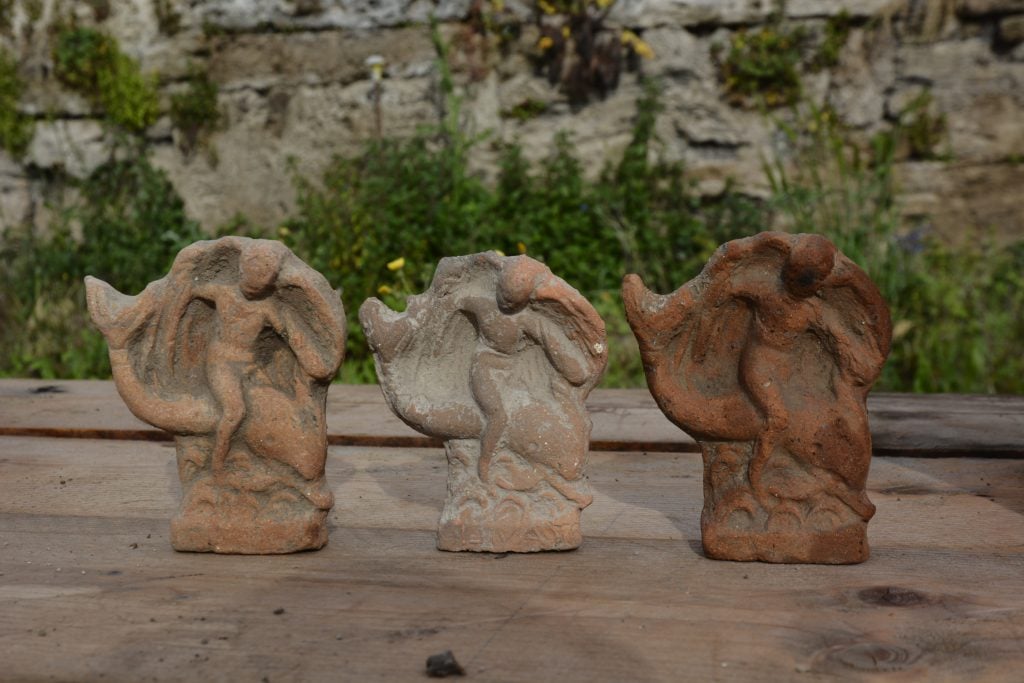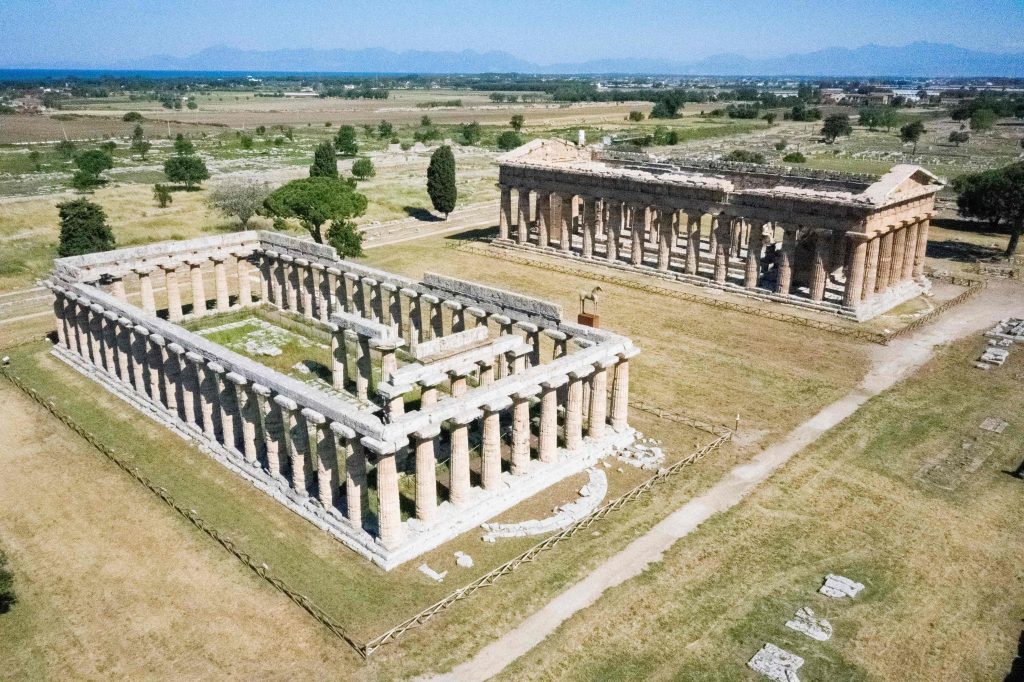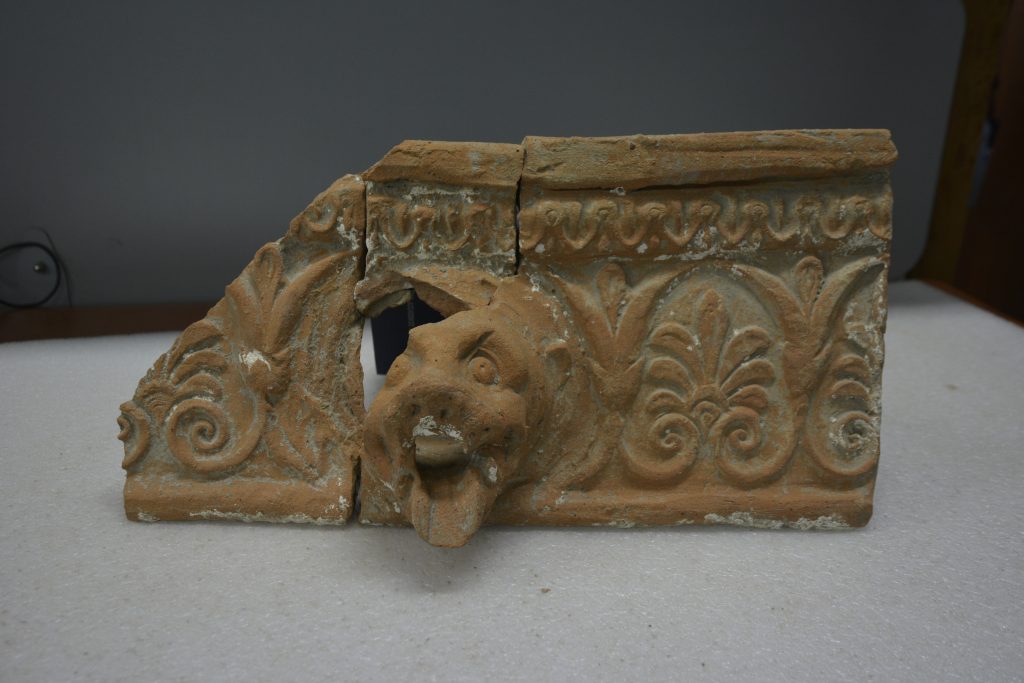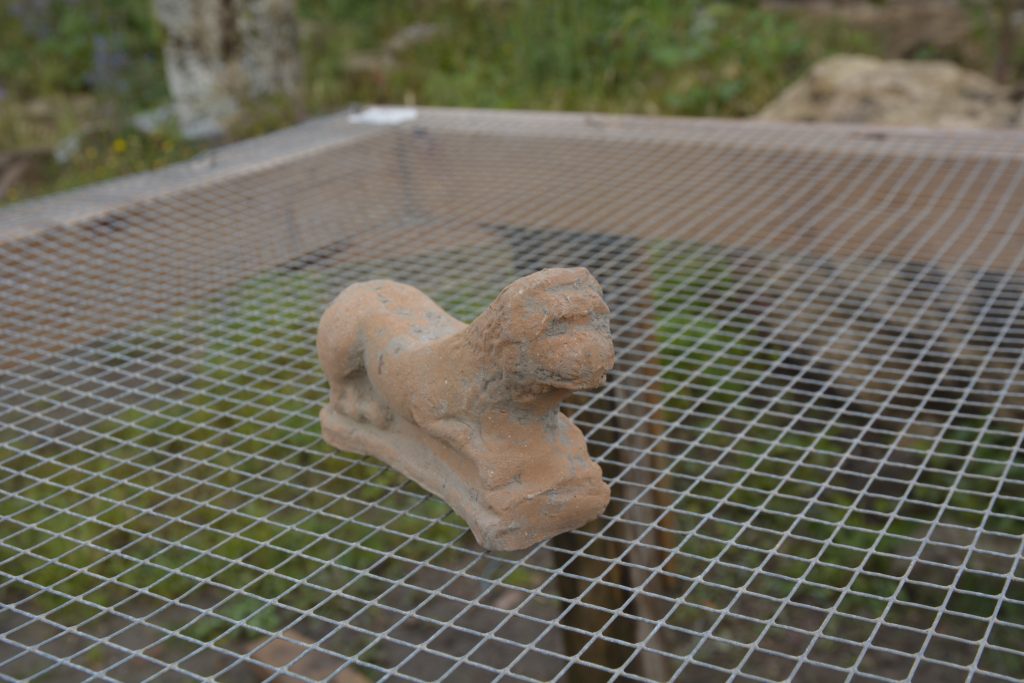Archaeology & History
Excavations at an Ancient Greek Temple Have Turned Up a Wealth of Terracotta Figurines, Including a Fun One of a Love God Riding a Dolphin
The other finds include seven bull heads and a dolphin statuette.

The other finds include seven bull heads and a dolphin statuette.

Richard Whiddington

Excavations at the ancient city of Paestum in the province of Salerno have uncovered a wealth of well-preserved terracotta figurines offering insights into the religious and cultural life of the Southern Italy site.
Among the discoveries were seven bull heads, a dolphin statuette, and a figurine of the Greek god Eros riding a dolphin, which may well have had a sexual symbolic significance for inhabitants of the city. The dolphin statuette is believed to have been created by the Avili family of ceramicists, whose work had never before been found at the site. The Paestum and Velia Archaeological Park has called the discoveries masterpieces of craftsmanship.

Two of the temples at Paestum. Photo: Charles Onians/AFP via Getty Images.
Paestum, which was founded as the Greek city called Poseidonia around 600 BCE, is famous for its three giant and remarkably well-preserved Doric temples. But in 2019, a fourth, smaller temple measuring roughly 50-by-20 feet was discovered by archeologists.

Fragments of the fourth temple discovered in Paestum. Photo: Parco Archeologico di Paestum e Velia
Unlike the other temples, this one was located far from the city center and along the ancient city walls close to the sea. Given its location, archeologists have suggested the temple may have dedicated to Poseidon after whom the city was originally named. The temple was abandoned sometime around the end of the 2nd century B.C.E.
Following the delays of the pandemic, these new discoveries are the fruits of the first excavation to have taken place at the fourth temple. In addition to the figurines and devotional objects, a stone slab with a gutter was excavated, which archeologists believe would have allowed the blood of sacrificed animals to be collected.

A votive lion found onsite at Paestum. Photo: Paestum Velia Archeological Park
“[The find] confirms the extraordinary value of this site and its great potential on which we are working,” Gennaro Sangiuliano, the Italian Minister of Culture said in a statement. “Every excavation that brings to light the historical evidence of the past demonstrates the immense wealth of our nation’s archaeological heritage of which there is still much to discover”.
Excavation on the site in Paestum, which is located around 60 miles south of Pompeii, began in the 1950s, but archeologists are confident discoveries made at the fourth temple will change alter the understanding of the city.